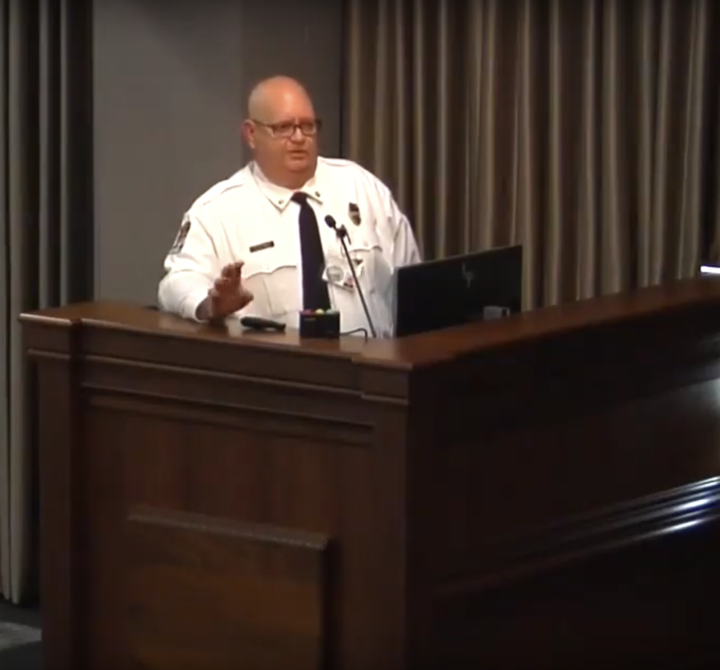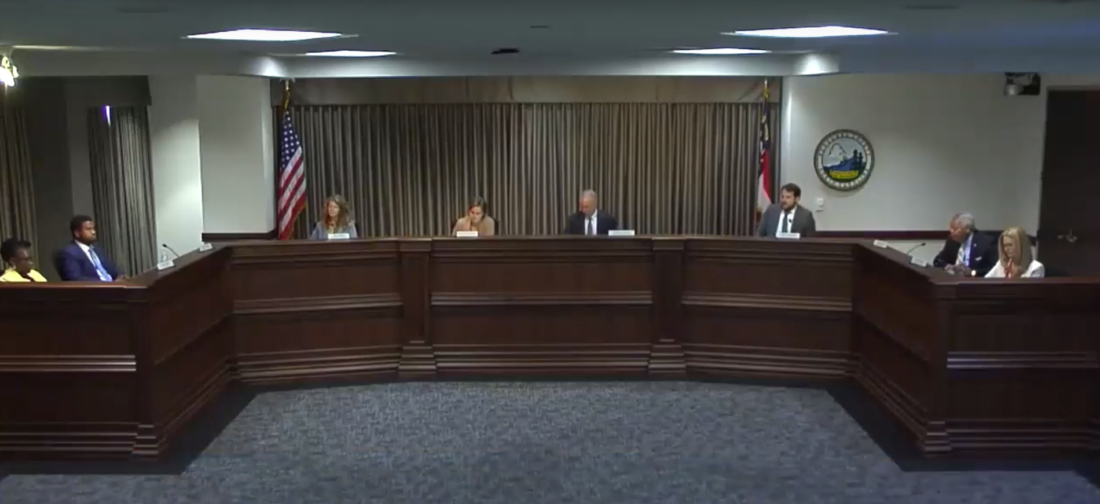For the last six months, the investigations team of Buncombe County’s Child Protective Services division has been so short-staffed that the workload has become “almost impossible” to keep up with, staff told the Buncombe County Board of Commissioners at a briefing Aug. 1.
“Turnover, vacancies and an inability to fill the positions that we have available is leading to extremely high workloads, an inability to balance workloads and staff being more and more burned out and leaving the agency, which exacerbates the problem,” said Rebecca Smith, Buncombe’s social work division director.
“In May, we were in a place where our entire staff was crying at their desk. It was really hard to watch,” Smith said.
As of July 27, 10 of 29 positions sat vacant, meaning investigators were responsible for 15 cases each, compared with the state-mandated maximum caseload of 10, according to Smith’s presentation.
That’s an improvement over May, when more active cases meant employees were responsible for 25 cases each.
Smith said the agency has been able to add only one extra employee since May. To clear the backlog, the division repurposed staff from other programs, including managers and supervisors, to keep the investigations team afloat and prevent workers from “walking out the door.”
The effort cut the number of active caseloads to 197 despite receiving 250 new cases in July, but as a typically busier September approaches, the department won’t be able to keep up, Smith said.
“We can’t solve it in that way; we need a sustainable plan,” she said.
Smith said many applicants have turned down offers, and they sometimes don’t get any applicants, something the department has never experienced before.
Out of 18 regional communities and metropolitan areas surveyed by human resources director Sharon Burke, Buncombe ranks 11th in pay adjusted for regional cost of living, Burke said.
Burke recommended boosting pay by $400 per month for investigations staff and giving employees $250 for each person they refer to an opening who stays at least a week. Staff members would receive another $250 if the recruits stays six months and another $250 if they stay a year, Burke said. The incentives would come from vacant positions in the existing budget, Burke said.
Burke already changed job qualifications to nontraditional degree programs instead of mandating bachelor’s degrees in social work. Commissioners will vote on the incentives at the regular meeting Aug. 15.
Buncombe approves new open burning rules
In April, Fire Marshal Kevin Tipton had to utter his two least favorite phrases in response to a fire that got out of control and engulfed a neighboring home.
“The hardest thing I have to tell a citizen is ‘I can’t help you.’ And the other one is even harder. ‘I’m sorry for your loss [of property],’” Tipton told commissioners at the Aug. 1 meeting.

He hopes the unanimous approval of the first update to Buncombe’s fire prevention ordinance since 2007 can help prevent that type of scenario from happening again, he said at the meeting.
While no new bans on burning are included, the ordinance requires outdoor fires of all sizes to be constantly attended. It is still illegal to burn trash, plastic, paper or any synthetic material in Buncombe County, Tipton said.
To host a bonfire — fires typically stacked by a machine and taller than 6 feet — requires a permit and a fire department truck and personnel on-site. Fires less than 6 feet in height, as well as land-clearing fires, don’t require a permit but must be constantly attended until completely extinguished, according to Tipton’s presentation.
The ordinance establishes setback rules of 50 feet from the nearest structure for an open burn and 15-25 feet for a fire pit or other approved container, depending on the fire’s size, Tipton said.
The fire marshal can deem a fire safe or if it should be extinguished, regardless of setback rules, Tipton said.
For example, if the side of a house is hot to the touch, even if the fire is an appropriate distance away per the setback rules, that is too dangerous, he said.
The ordinance also sets new penalties of up to $500 for violating open burning rules.
The county has begun a 14-day public information campaign about the changes. Enforcement will begin 30 days after the campaign is complete, Tipton said.




Every job, every company, every organization is facing a crunch because no one either wants to live here or can afford to live here. People move to cities for quality of life. Asheville’s is poor, at best. Bad pay, high rent, high real estate, high crime, high homelessness, poor schools, poor water, poor roads. What’s to move here for except to retire in a gated community? Look for more of those.